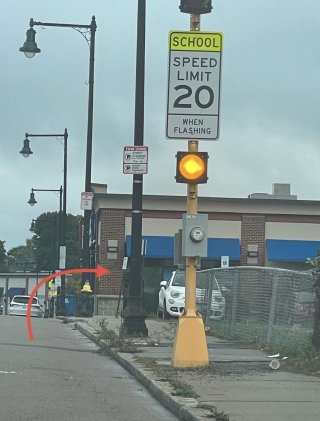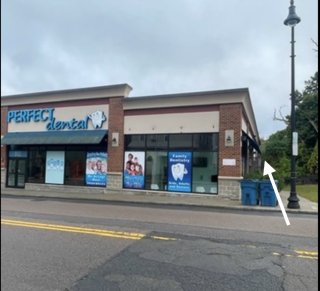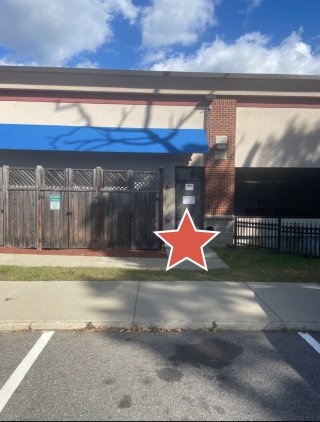Stay Updated, Get Involved - Lower Neponset River, Boston/Milton, MA
- Announcements and Key Topics
- Site Fact Sheets and Community Updates
- Public Participation/Meeting Information Materials
- Community Involvement Plan
- Community Advisory Group
- Other Projects: Short-Term Cleanup Actions
- Reuse Assessment
- Community Resources
- Site News Archive
Announcements and Key Topics
In 1980, Congress passed the Comprehensive Environmental Response, Compensation and Liability Act, known as Superfund. The law gave EPA the authority and funds to hold polluters accountable for cleaning up the most contaminated sites across the country. When no viable responsible party is found or cannot afford the cleanup, EPA steps in to address risks to human health and the environment using funds appropriated by Congress, like the funding provided by the Bipartisan Infrastructure Law.
This site is one of many across the country to receive funding from the Bipartisan Infrastructure Law, which invested $3.5 billion in environmental remediation at Superfund sites on the National Priorities List. The Bipartisan Infrastructure Law funding will be used to initiate the remedial investigation, which will include conducting site reconnaissance, property and boundary surveys, historical and cultural resource surveys, collection of topographic and bathymetric data, and collection of sediment, surface water and soil samples.
- See highlights from the first year of Bipartisan Infrastructure Law funding at Superfund sites.
- Visit For more information about EPA's Superfund program for more information.
A recording of the workshop can be found here.
- Listing to the National Priority List (NPL): On March 16, 2022, the Environmental Protection Agency (EPA) listed the Lower Neponset River site on the National Priorities List (NPL). To get more details on the Final NPL Listing, please see the following Press Release.
- To read more about the Site, please use the link below:
Publicly available documents.
Site Fact Sheets and Community Updates
- September 2024 Site Update Fact Sheet (pdf)
- Site Community Update (Email) - May 2024 (pdf)
- Site Community Update - December 2023 (pdf)
- February 2023 Community Update Fact Sheet (pdf)
- The Massachusetts Department of Public Health's 2022 Community Fact Sheet: Recreational Use of the Neponset River (pdf)
- September 2021 Community Update Fact Sheet (pdf)
Additional languages are available here.
Public Participation/Meeting Information Materials
Community involvement is the process of engaging in dialogue and collaboration with community members. The goal of Superfund community involvement is to advocate and strengthen early and meaningful community participation during Superfund cleanups.
EPA offers regular opportunities to learn more about the Superfund process and cleanups in your area. Please check back often for the latest update and/or to sign up for our e-mail alerts to stay informed!
During December and January, an EPA contractor from SKEO Solutions will be contacting community members to gather information to inform the creation of a Community Advisory Group for the Lower Neponset River Superfund Site. More information about the CAG will be shared at EPA's next community meeting for the Site.
As a note, meetings are held either virtually or in person. Translation services can be made available upon request. If you have any further questions or special needs, please email [email protected].
2024
- November 12, 2024
- February 27, 2024
- Presentation - February 27, 2024 Hybrid Public Meeting (pdf)
- Video - February 27, 2024 Hybrid Public Meeting
- Site Update and Community Advisory Group (CAG) Informational Meeting, 02/27/2024 (pdf)
- Reunión Informativa del sitio Superfund Lower Neponset River y Grupo Asesor de la Comunidad (CAG), 02/27/2024; Spanish Version (pdf)
- Rankont Enfòmatif sou Sit Superfund Rivyè Lower Neponset ak Gwoup Konsiltatif Kominotè a (CAG), 02/27/2024; Haitian-Creole Version (pdf)
2023
- June 12, 2023
- February 2023
2022
- November 10, 15, & 17, 2022 Superfund Workshops
- Presentation - November 10, 15, & 17, 2022 EPA Superfund Hybrid Workshops (pdf)
- Superfund Workshop Handout - Government and the Superfund Process (pdf)
- Lower Neponset River - Acronyms and Abbreviations List (pdf)
- Superfund Workshop Glossary (pdf)
- Superfund Workshop Feedback Form (pdf)
- Community Fact Sheet 2022 - Recreational Use of the Neponset River 2022 (pdf)
- Community Fact Sheet 2022 - Recreational Use of the Neponset River- Spanish (pdf)
- Community Fact Sheet 2022 - Recreational Use of the Neponset River- Haitian Creole (pdf)
- June 28, 2022
2021
- October 5, 2021
Community Involvement Plan
The Lower Neponset River Superfund Site Community Involvement Plan (CIP) is a site-specific strategy to enable meaningful community involvement throughout the Superfund cleanup process. EPA conducted a series of interviews to collect feedback for the CIP, followed by a 45 day public comment period. The CIP was finalized in November 2023.
A copy of the final CIP can be accessed here: Community Involvement Plan (pdf)
- Plan de Participación Comunitaria (Spanish Version) (pdf)
- Plan Patisipasyon Kominotè (Haitian Creole Version) (pdf)
Community Advisory Group
What is a Community Advisory Group (CAG)?
A Community Advisory Group (CAG) is made up of representatives of diverse community interests. A CAG is designed to serve as the focal point for the exchange of information among the local community and EPA, the State regulatory agency, and other pertinent Federal agencies involved in cleanup of the Superfund site. Its purpose is to provide a public forum for community members to present and discuss their needs and concerns related to the Superfund decision-making process. A CAG can assist EPA in making better decisions on how to clean up a site. It offers EPA a unique opportunity to hear-and seriously consider-community preferences for site cleanup and remediation. However, the existence of a CAG does not eliminate the need for the Agency to keep the community informed about plans and decisions throughout the Superfund process.
The Community Advisory Group (CAG) has continued to form itself and held meeting #8 on Tuesday, October 15, 2024 at the Shops at Riverwood (Community Room) in Hyde Park, MA. The CAG meetings are currently taking place during the 3rd Tuesday of each month typically in-person (highly encouraged) with the option of joining virtually from 6PM to 8PM - Location to be announced ahead of meetings. A total of three subcommittees have been formed which include: the Organizational Committee, the Technical Committee and the Outreach Committee.
NOTE: The CAG needs a variety of additional members from all four communities adjacent to the Site (Hyde Park, Mattapan, Dorchester, and Milton), but in particular would love to have additional folks from Mattapan, Milton and Dorchester to join/volunteer as EPA prepares to engage with the CAG and community throughout the cleanup process. If you have any questions or have interest in joining to be a member of the Community Advisory Group (CAG), please reach out to me via email at: [email protected] or [email protected].
Upcoming CAG Meetings
The upcoming Tuesday, January 21st Lower Neponset River Superfund Site Community Advisory Group (CAG) meeting will be held from 6PM to 8PM:
ADDITIONAL DIRECTIONS: 920 River Street, Hyde Park, MA 02136 is east of the cement church (which may pop up on Google maps so that means look to your left for meeting location). The Community Room entrance is located in the right front corner of a small parking lot that members can use (street parking is also available but please read/doublecheck street signs). Across from the locations small parking lot is River Street Auto Center (919 River) which is on the left — You’ll know you’re in the correct spot because upon entering the parking lot there’s a 'Family Dental' office at the left front corner and is directly across from the intersection of River Street and Redding Ave.



& Virtually, for those who are unable to join at the meeting location by clicking HERE.
Meeting ID: 251 274 341 088
Passcode: 3BK74v2k
Dial in by phone: +1 857-299-6148,,717832460# United States, Belmont
Phone conference ID: 717 832 460#
Join on a video conferencing device
Tenant key: sip:[email protected]
Video ID: 111 376 793 1
Community Advisory Group (CAG) Agendas
- CAG Meeting Agenda #11 - December 17, 2024 (pdf)
- CAG Meeting Agenda #10 - November 19, 2024 (pdf)
- CAG Meeting Agenda #9 - November 6, 2024 (pdf)
- CAG Meeting Agenda #8 - October 15, 2024 (pdf)
- CAG Meeting Agenda #7 - September 17, 2024 (pdf)
- CAG Meeting Agenda #6 - August 27, 2024 (pdf)
- CAG Meeting Agenda #5 - August 6, 2024 (pdf)
- CAG Meeting Agenda #4 - July 17, 2024 (pdf)
- CAG Meeting Agenda #3 - June 4, 2024 (pdf)
- CAG Meeting Agenda #2 - May 1, 2024 (pdf)
- CAG Meeting Agenda #1 - April 2, 2024 (pdf)
Other Projects: Short-Term Cleanup Actions
Remedial Actions handle complex sites needing long-term responses. Remedial actions manage releases that do not pose an urgent threat to people's health or the environment and do not require immediate action. Remedial actions involve complex and highly contaminated sites that often require several years to study the problem, develop a permanent solution, and clean up the contaminated waste. These are the sites that most people think of when they hear about the Superfund program.
Removal Actions address releases or threatened releases requiring prompt responses. Emergency actions eliminate immediate risks and ensure public safety. Examples of such emergencies are chemical releases at a facility or during transportation. EPA may respond to help state and local authorities deal with these emergencies quickly.
Reuse Assessment
The Lower Neponset River Superfund Site Reuse Assessment Report identifies reasonably anticipated future land uses at the Site to guide for EPA's cleanup decision-making process and inform land use planning activities by state and local governments and other interested parties. The report provides background information and identifies current land use, ownership and demographic considerations at the Site as well as stakeholder perspectives and feedback gathered in 2022 and 2023.
A copy of the Reuse Assessment Report can be accessed here: Reuse Assessment Report (pdf)
- Informe de evaluación de reutilización (Spanish Version) (pdf)
- Rapò Evalyasyon Re-itilizasyon (Haitian Creole Version) (pdf)
Community Resources
Community involvement is the process of engaging in dialogue and collaboration with community members. The goal of Superfund community involvement is to advocate and strengthen early and meaningful community participation during Superfund cleanups. There are a number of resources including:
- Technical Assistance for Communities
- Community Involvement Tools and Resources
- Community Advisory Group (CAG)
